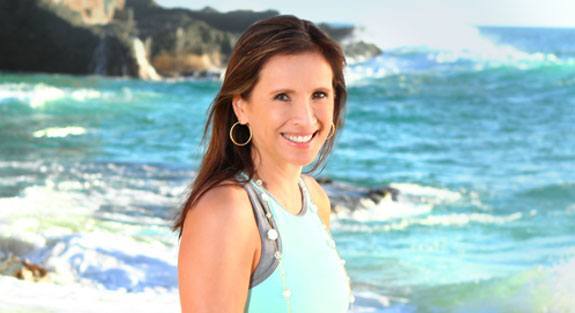Newport Beach women who are planning to have breast augmentation surgery often have questions about possible complications following their surgery. A small percentage of women with breast implants may experience a complication called capsular contracture. This condition occurs when excessive scarring occurs around the implant. Breasts with capsular contracture may feel hardened, appear higher on the body than a natural breast position (causing the breast to look misshapen), and can be painful. Patients experiencing these symptoms look to Dr. Lavinia Chong for knowledge and experience with revisional breast surgery.
“My entire experience was beyond my expectations… Dr. Chong is incredible and a true artist with an eye for perfection. Her aftercare has been unbelievable and I could not feel more respected and valued as a patient.” -Patient from Yelp
Many women throughout California have sought out the advice of female plastic surgeon Dr. Lavinia Chong to address and resolve the symptoms brought on by capsular contracture. A surgical procedure called a capsulectomy is often performed to remove this thickened scar tissue. The process of a capsulectomy involves removal of the excess tissue and replacement of the breast implant. The resulting look is a natural-looking breast that moves and feels just as nature intended.
Classification of Capsular Contracture
A woman’s body responds to a foreign body, such as a breast implant, by creating a layer of scar tissue or a capsule around the device. Capsular contracture is a natural phenomenon occurring in varying degrees, classified according to the Baker grading system. The degrees of capsular contracture are:
- Grade I: the breast feels soft and mobile;
- Grade II: the breast looks normal, but feels slightly firm;
- Grade III: the breast looks abnormal and feels abnormal;
- Grade IV: the breast looks abnormal, feels abnormal and pain is constant.
Capsulectomy FAQs
What Puts Me at Risk for Capsular Contracture?
There are a variety of conditions which may contribute to a Newport Beach woman developing capsular contracture. Women with breast implants (whether saline or silicone breast implants) are at higher risk when the following situations exist:
- Hematoma or a collection of blood occurs around the implant;
- Infection originating at the surgical site;
- Infection remote from the surgical site such as acne on the chest, untreated bladder infections, or tooth decay (please be aware, antibiotic prophylaxis will be required for dental procedures within six months post implant surgery);
- Mastitis (infection of the breast tissue caused by a clogged duct or by bacteria entering through a cut or break in the skin);
- Placement of the breast implant via periareolar incision during the primary breast augmentation surgery;
- Tattoos and/or nipple piercings acquired within 6 months of the surgery;
- Experiencing breast trauma after your surgery (airbag deployment in motor vehicle accidents);
- Radiation therapy (for breast cancer), after your breast augmentation;
- Selecting breast implants that are too large for your body; and/or
- Having an autoimmune disease such as Lupus.
Will My Breast Implants Be Removed During a Capsulectomy?
When having revisional surgery with a capsulectomy, some patients opt to remove their breast implants entirely and go back to their natural breast size. The decision of whether or not remove your breast implants during a capsulectomy or replace with a new implant is a personal decision. When experiencing capsular contracture, many Newport Beach women seek Dr. Chong’s guidance specifically for her experience with breast implant surgery and revisional procedures such as explanation, implant exchanges, and procedures using Strattice. During your consultation, female plastic surgeon Dr. Lavinia Chong will fully explain the procedures and options available to help you achieve your current goals.
What is the Difference between a Total and Partial Capsulectomy?
Newport Beach plastic surgeon Dr. Lavinia Chong determines the type of procedure you will need based, in part, upon the extent of the capsule. A capsulectomy provides a surgical solution for capsular contracture, but there are slight variations between a total capsulectomy and a partial capsulectomy. The differences between these two procedures are:
- The most common procedure, a partial or anterior dome capsulectomy, involves surgically removing the capsule, separating it from the breast flap and the chest muscle;
- A total capsulectomy includes surgical excision, as described for the anterior dome capsulectomy, as well as posteriorly, off the chest wall. This more extensive procedure is often necessary in the event that another implant is planned (Breast Implant Exchange).
How Do I Know if I’m a Candidate for a Capsulectomy?
If you are beginning to experience symptoms related to capsular contracture, please call our Newport Beach office to schedule an appointment. Following a breast examination, Dr. Chong will assess whether or not you are exhibiting signs of capsular contracture, and will determine the current Baker classification of your capsule. She will also address any underlying causes which may be contributing to your current symptoms.
To determine whether you would be a candidate for any type of breast surgery, Dr. Chong considers a variety of aspects about a Newport Beach woman’s condition and health before clearing them for a capsulectomy. These include:
- Being in good medical health;
- Being educated on and having realistic expectations for your capsulectomy surgery;
- Being a non-smoker, as smoking may interfere with both your capsulectomy procedure and your recovery time; and
- Being in good psychological health.
What Should I Expect on Surgery Day?
Your preparation for your capsulectomy will be much like that of your initial breast augmentation. You may be requested to obtain clearance for surgery by your primary care physician prior to scheduling. At your pre op appointment two weeks prior to surgery, you will have met with Dr. Chong to confirm the details of your procedure.
On the day of surgery, you will arrive at our Orange County Surgical Center and be admitted by a member of our surgical team. You will be prepped for surgery and meet with your anesthesiologist to begin the process of (MAC) sedation, monitored anesthesia care. Following surgery, you will be transferred to your recovery room where our nursing staff will continue to monitor you until you are ready to go home. For those patients traveling alone long distances, overnight care at an aftercare facility may be arranged, or overnight nursing assistance at an area hotel may be facilitated.
Call Today to Schedule a Consultation with Dr. Lavinia Chong
If you are experiencing pain, discomfort, or any other symptoms of capsular contracture, please call to schedule an appointment with Dr. Chong at her Newport Beach office as soon as possible. To schedule your appointment, call us today at (949) 644-1400.



